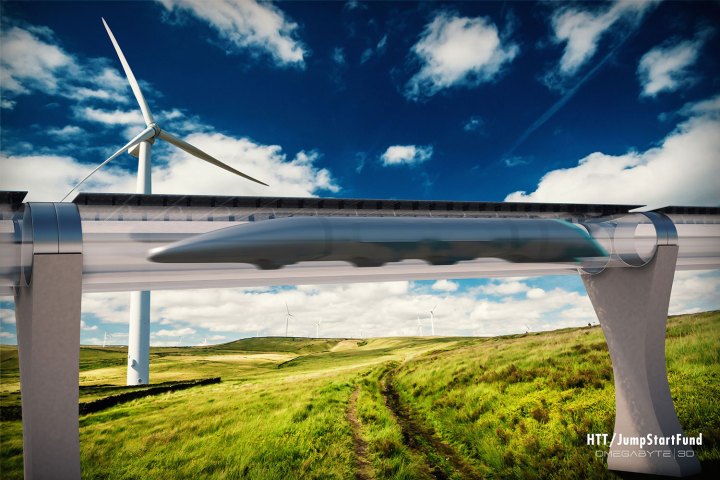
Anatolyi Zaitsev, an official from the St. Petersburg State Transport University, said recently that the initial plan could see Moscow connected with major sea ports on the Baltic. Following that, a track could be constructed to connect the capital with St. Petersburg, about 380 miles (610 km) away.
Russian engineers are currently in the laboratory developing the technology, business news site RBC reported. Global economic development company Gordon Atlantic is listed as an investor, with more being sought.
Last month Russian news agency TASS reported transport minister Maxim Sokolov as saying the country “is ready as no other country” to implement the project. However, no timeline has yet been given on possible construction of the high-speed system.
Russia’s rail operator is already examining the option of using Hyperloop technology for freight movement, TASS reported, noting that specialists from the operator have “formed a working group with Hyperloop One to study this technology.” However, it seems Russia would be developing its system independent of existing operations in the U.S., at least at this stage.
Elon Musk’s big idea
The whole Hyperloop idea was cooked up about four years ago by SpaceX and Tesla CEO Elon Musk. The system plans to use propulsion technology to push passenger-filled pods through tubes at speeds of up to 750 mph.
Hyperloop One is one of two private U.S. companies currently developing and testing Hyperloop technology, the other being Hyperloop Transportation Technologies (HTT).
Work on the project is gathering pace in the U.S. Last month Hyperloop One successfully carried out its first public “propulsion open-air test” in North Las Vegas, offering those outside the project their first proper look at the company’s electromagnetic propulsion system. HTT, in contrast, is working on a propulsion technology using passive magnetic levitation.
Initially, the ambitious plan focused on connecting LA with San Francisco, with a Hyperloop journey forecast to take a mere 35 minutes, significantly quicker than the six hours or so it’d take by road. But time-consuming regulatory processes in the U.S. have led Hyperloop One to also consider either Europe or Singapore for its debut operational system, while HTT has shown interest in Asia and the Middle East. Development and testing, meanwhile, is set to continue in the U.S.


